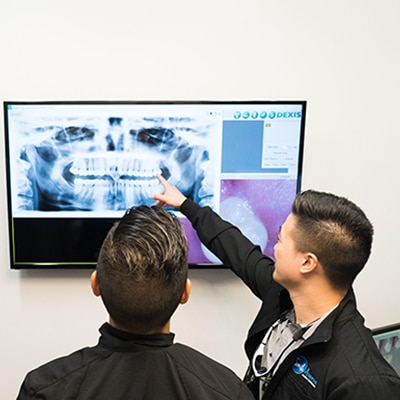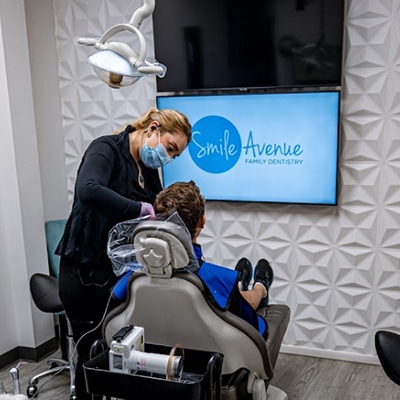Dental Trauma: Types, Symptoms & Treatment
Overview
What is Dental Trauma?
Dental trauma encompasses a range of oral health issues resulting from injury to the teeth, gums, or jawbone. These injuries can vary greatly in severity, from minor chips to significant fractures of the teeth, or even dislodgement.
Dental Trauma Types
There are various classifications of dental trauma, each with its unique implications for treatment. Some common types include chips, fractures, dislodgements, and avulsions (complete displacement) of teeth.
What to Do If You Have Dental Trauma
If you experience dental trauma, it’s crucial to seek professional dental care promptly to mitigate any potential damage and begin necessary treatments.
Symptoms and Causes
What are the Symptoms of Dental Trauma?
Symptoms of dental trauma can include visible damage to the teeth, pain, swelling, bleeding, or changes in bite alignment. In some cases, there may be no immediate symptoms, making it important to consult a dentist for an assessment.
What Causes Dental Trauma?
Dental trauma can be caused by various factors including falls, sports injuries, accidents, and occasionally, dental procedures themselves.
Dental Trauma Risk Factors
Certain activities and conditions can increase the risk of dental trauma, such as participating in contact sports without appropriate protective gear or having pre-existing dental conditions that weaken the teeth.
What are the Consequences of Dental Trauma?
Without timely treatment, dental trauma can lead to further oral health issues, including infection, loss of the affected tooth, and potential impacts on overall health.
Diagnosis and Tests
How are Dental Injuries Diagnosed?
Dental injuries are typically diagnosed through a combination of visual examination, patient history, and, when necessary, dental X-rays to assess the extent of the trauma.
Management and Treatment
How is Dental Trauma Treated?
The appropriate treatment for dental trauma varies depending on the type and severity of the injury. Options may include:
- Dental fillings and dental bonding for minor chips and fractures.
- Root canal therapy for damaged tooth pulp.
- Re-stabilization or replantation for displaced teeth.
- Tooth extraction when a tooth cannot be saved.
- Tooth replacement using dental implants or bridges for lost teeth.
Prevention
How Can I Reduce My Risk for Dental Trauma?
Reducing the risk of dental trauma involves wearing protective mouthguards during sports, practicing good oral hygiene, and avoiding using teeth as tools to open or break objects.
Outlook / Prognosis
What Can I Expect If I Have Dental Trauma?
The outlook for dental trauma patients varies with the severity of the injury but is generally positive with prompt and appropriate treatment. Recovery times can range from a few days for minor injuries to several months for more severe cases.
Living With
When Should I Call My Dentist?
It is important to contact your dentist immediately if you experience any form of dental trauma, even if the damage seems minor, to prevent further complications.
When Should I Go to the ER?
For severe dental injuries, particularly those involving significant pain, bleeding, or trauma to the face or jaw, seeking immediate care at the ER is recommended.
What Questions Should I Ask My Dentist?
When consulting with your dentist about dental trauma, inquire about the best treatment options for your specific injury, potential long-term effects, and strategies for prevention in the future.
Additional Common Questions
What is the Most Common Dental Trauma?
The most common dental trauma includes chipped or fractured teeth, often resulting from falls, sports accidents, or biting on hard objects.
A Note from Cypress Dentist Smile Avenue
Cypress Dentist Smile Avenue emphasizes the importance of immediate care for dental injuries to prevent long-term damage. Always consult with a dental professional if you suspect you have experienced dental trauma.
Impact of Dental Trauma on Mental Health
The Psychological Consequences of Dental Trauma
Experiencing dental trauma can not only affect physical health but also have substantial psychological impacts. Victims may suffer from embarrassment, low self-esteem, or anxiety related to their appearance and communication abilities. It’s important to address these psychological aspects as part of the treatment and recovery process.
Technological Advancements in Treatment
Emerging Technologies in Dental Trauma Care
Advancements in dental technology have significantly improved the treatment outcomes for dental trauma. Digital dentistry, including 3D imaging and printing, allows for more precise diagnosis and custom treatment plans. Biomaterials and tissue engineering are also evolving to provide more effective solutions for tooth repair and replacement, offering hope for faster recovery and better functional and aesthetic results.








